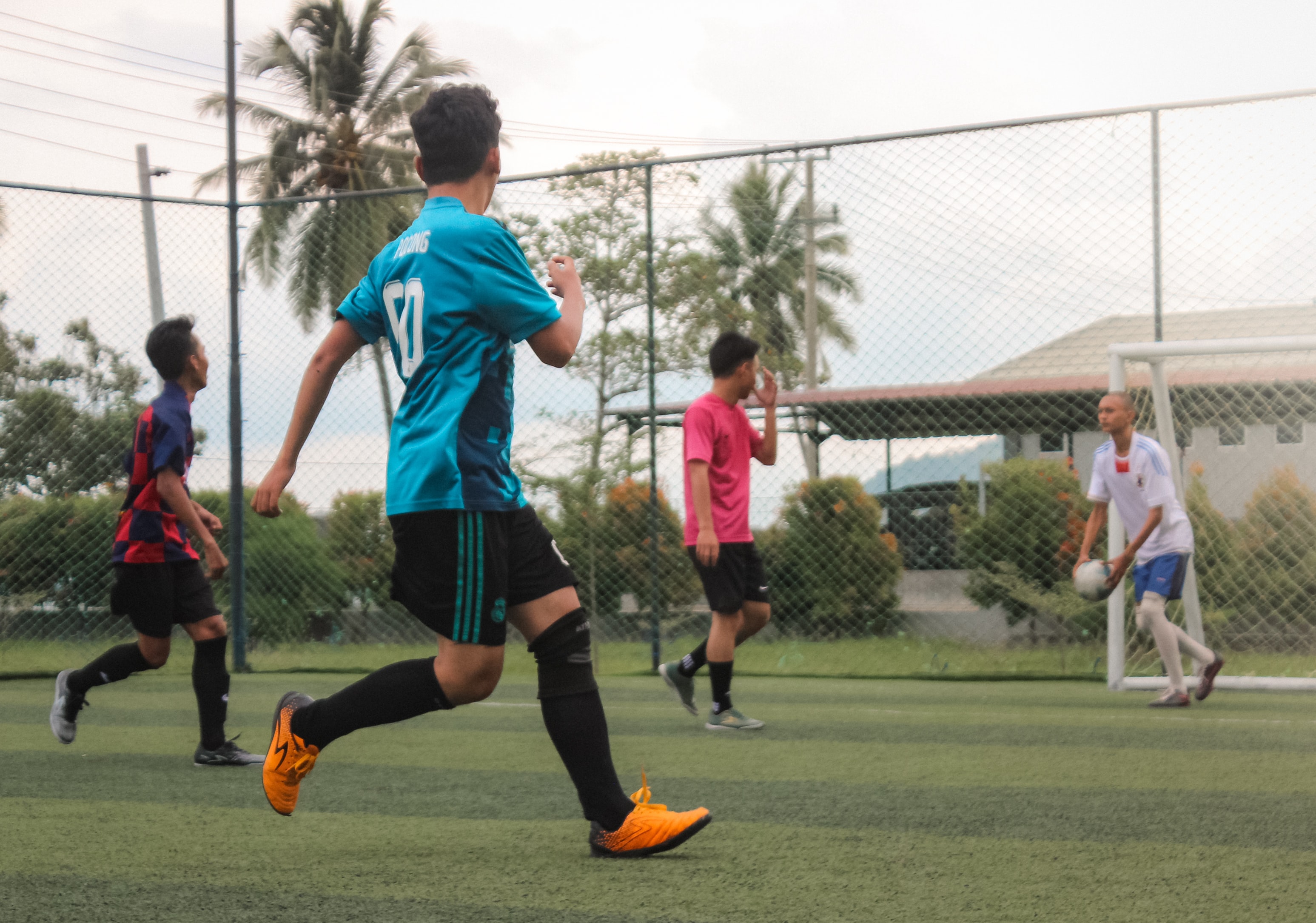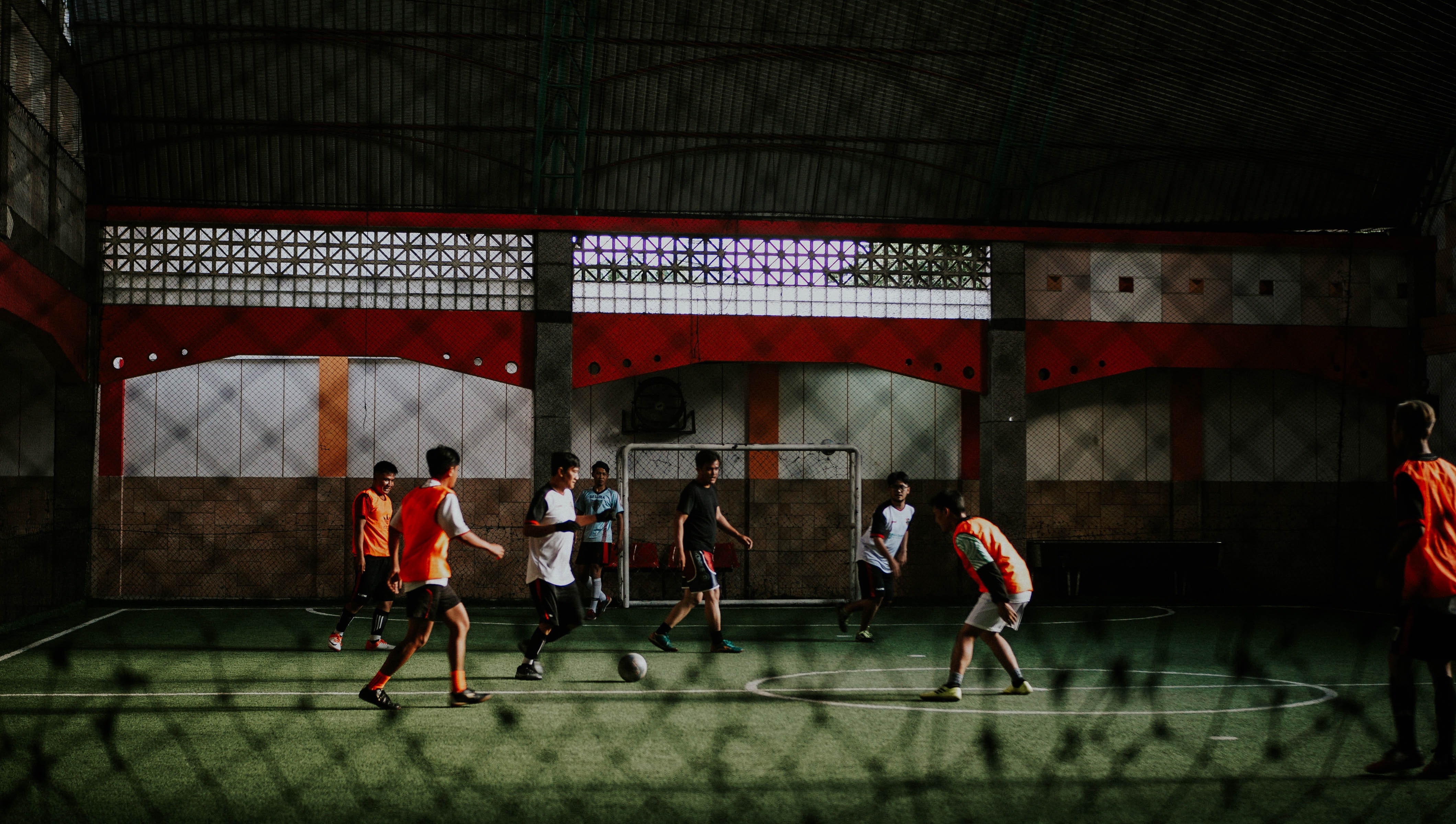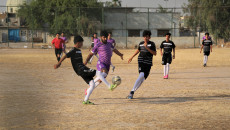Dozens of athletes have filed a complaint with the Kirkuk office of the Iraqi Integrity Commission to enforce the decision that mini sports stadiums in Kirkuk should be for free while those who run it are still charging athletes and amateurs in Kirkuk neighborhoods.
The Iraqi Ministry of Sports and Youth decided three months ago at the request of the General Directorate of Sports and Youth of Kirkuk to make all miniature stadiums for 5-player football teams in different neighborhoods of Kirkuk free of charge.
"We know that there is a decision, but no stadium has complied with it... Several parties have material interests in these stadiums and are not ready to give up that interest," Mohammed Nihad, the supervisor of one of the soccer popular teams, told KirkukNow.
"We hope the Integrity Commission will encourage the implementation of this decision and punish those who do not comply with it," Nihad added.
In most neighborhoods of Kirkuk, during the reign of former governor Najmadin Karim, futsal stadiums were opened for athletes and popular teams, but most of them were run by party officials and were outside the authority of sports and youth.
The stadiums are in high demand, especially at night, and both teams are charged 20,000 Iraqi dinars IQD (USD13) for one hour of play.
Futsal is an association football-based game played on a hard court smaller than a football pitch, and mainly indoors. It has similarities to five-a-side football and indoor soccer. Futsal is played between two teams of five players each, one of whom is the goalkeeper. Unlimited substitutions are permitted.
Futsal stadiums in Kirkuk and all over Iraq are mainly outdoor and the ground is either tartan or artificial grass.

"Free playing in these stadiums is a good incentive for us, especially for those players who are in a critical financial condition and have no other job," said Balen Qadir, a football player in Imam Qasim neighborhood.
"Sometimes when there are tournaments between teams, they charge us double," he said.
Marwan Ahmad, director of sports and youth in Kirkuk, said three months ago, they have met with the legal department of Kirkuk province, to find a legal solution for all the stadiums, because they were random and “we felt that they are illegal.”
“They were built over state lands yet the revenue was not for the government, so the first step was to put all the stadiums under the authority and supervision of our department, and then we decided to make them all free.”
"We submitted all the decisions to the governor of Kirkuk and then to the Iraqi Ministry of Sports and Youth, and they confirmed it.
Until that decision, only three futsal stadiums in Kirkuk belonged to the Sports and Youth Directorate, but now all the stadiums are operating under their supervision.
Marwan did not have statistics on all the stadiums, but insisted that their decision had not been implemented in any stadium.
"After the complaint of some athletes and soccer teams in popular neighborhoods to the Integrity Commission, the issue has been raised again and there are efforts to resolve it through the courts.”
The northern oil-rich city of Kirkuk, located 238 kilometers north of Baghdad, is an ethnically mixed province for 1.7 million Kurds, Sunni and Shiite Arabs, and Turkmen. It has long been at the center of disputed territories between Baghdad and Erbil.
Though the five oil wells of Kirkuk pump hundred thousand barrels of crude oil a day, the province misses proper utilities of power supply, drinking water, garbage collection, and basic healthcare and education system badly hurt by corruption and long years of war and instability.
Kirkuk's crude oil exports to Turkey and Jordan boosted last May, earning more than $369 million American dollars for 3.2 million barrells.
After a complaint by some athletes and local teams to the Integrity Commission, the issue has been raised again.
“We received the stadiums during the Najmadin Karim administration and the party supported us. We built them ourselves, but only the land belongs to the government, so we consider it our right to receive money and spend part of it for stadium maintenance,” said one of the owners of futsal stadiums of Kirkuk who spoke to KirkukNow on the condition of anonymity.
"Most of the stadiums are the property of the municipality, the Sunni endowment and the Ministry of Finance. Other people cannot take money from them. However, we have submitted all the evidence to the Integrity Commission and the court to investigate the problem,” said director of sports and youth in Kirkuk.
“We have also a committee specially to follow up this case.”






